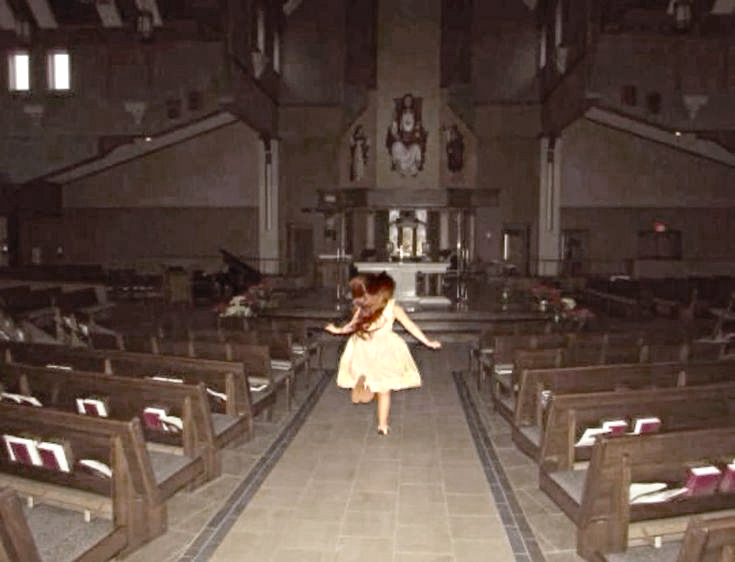
It was April, but still very cold and the chapel where we had just celebrated the Eucharist and the cafeteria to which we had retired for coffee lacked somewhat both for heat and light. There were about a hundred of us present, monks and seminarians mostly, along with a few lay people. All of us were somberly drinking coffee and making small talk, except for one child, a little girl of four. She, dressed in a smart, bright little coat, was skipping smack down the middle of the cafeteria, singing to herself, letting off steam after having been forcibly silenced during the long liturgy that had just preceded.
Everything about that little girl spoke of life, while everything about the rest of us spoke of soberness, lack of color, lack of life, age, and dram duty. At that moment, for all the world, it looked like there was more real life in one little girl, who had just been released from church, than in all the rest of us, God-fearing, duty-driven, church-going, wisdom-filled persons, none of whom could skip publicly if our lives depended on it.
How often does it appear as though what is happening in our churches is dead, duty-driven and sterile? Alanis Morissette, is a bitter, ex Catholic who complains of the “loveless priests” who run the faith and who stifle love and energy.There is a lot that needs to be reflected upon here, although in the end it is a considerably more complex than what is spontaneously suggested when we see a little girl happily skipping among sombre monks.
We often see a wisdom that is disconnected from life that precisely lacks any real connection to energy, eroticism, color, wit, intelligence, beauty, and raw health. That is why sometimes someone can deal with the issues of meaning, pain, death, and forgiveness and yet be unable to radiate any real energy or health. You go to church for wisdom, not for fun.
It can be very helpful to know this. One should never confuse Alanis Morissette with Mother Theresa, nor Jerry Seinfeld with John of the Cross. In one, we see more the raw beauty and pulse of God’s life; in the other we see the maturity of God’s wisdom. Part of our task is to bring them together. [Excerpt from Ron Rolheiser’s “Life versus Wisdom” November 1998]
